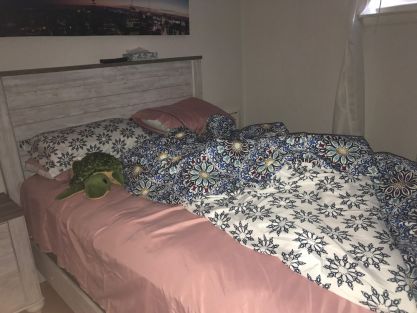“Make your bed every morning.” That is one of the many pieces of advice that Admiral William H. McRaven gave to the 2014 graduating class of the University of Texas at Austin.
He started the advice by saying that as a Navy SEAL, every morning in basic SEAL training, his instructors would show up in his room and the first thing they would do is inspect the beds. The corners had to be square, the covers had to be pulled tight, the pillow had to be centered and the blanket needed to be folded neatly at the foot of the bed.
McRaven did not tell the students they needed to make their beds with the precision he and his fellow SEALs did, but be encouraged them to make their beds every morning.
“If you make your bed every morning, you will have accomplished the first task of the day. It will give you a small sense of pride, and it will encourage you to do another task and another and another,” McRaven said to during his speech.

McRaven said that making your bed every morning has a rippling effect.
He claimed that after your bed is made, you tend to feel more organized and prepared to start the day. The preparation and sense of organization helps build a positive attitude, which leads to an overall good day.
Diego Ramirez, senior international business major, said, “If I don’t make my bed, the day does not feel right. For me, every morning, I wake up, shower then make my bed. Making my bed is the first step to a good day. It’s one of the first commitments of the day.”
Hunch.com conducted a survey of 68,000 people that showed that 59 percent of people do not make their beds, 27 percent do make their beds and 12 percent pay a housekeeper to make their beds for them.

71 percent of those who make their beds said they were happy while 62 percent of those who do not make their beds said they were unhappy.
Cabrini University’s psychology professor Tamarah Smith said: “We need to master smaller skills that are involved in larger tasks in order to be able to do the larger tasks. An example might be learning to play the piano. To play a song fluidly you need to learn to read the music; however, you learn a few notes at a time and then a few more and eventually put them all together.”
Smith and McRaven agree that making your bed is the first step towards having a successful day.
“Making your bed will also reinforce the fact that little things in life matter. If you can’t do the little things right, you will never do the big things right,” McRaven said.


